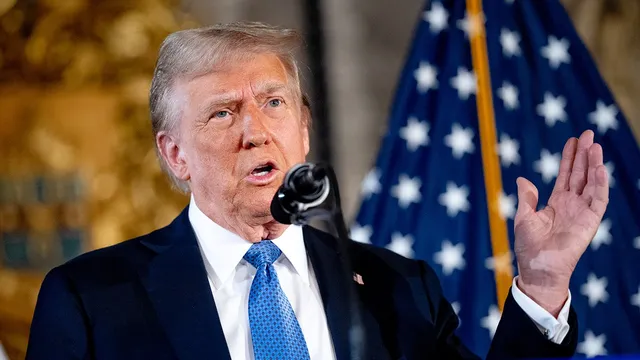
Trump pushes Senate to finalize massive spending bill by July 4
2025-06-04 22:56- Senate Majority Leader John Thune is leading efforts to pass President Trump's tax and spending bill.
- Several Senate Republicans have expressed concerns over cuts to Medicaid and proposed spending reductions.
- The deadline to have the bill signed into law is set for July 4, highlighting the urgency for lawmakers.
Express your sentiment!
Insights
In Washington, the Senate has initiated a focused effort to advance President Donald Trump’s comprehensive tax and spending package, referred to as the 'one big beautiful bill.' This initiative aims to secure its passage in time for the anticipated July 4 holiday, creating a pressing timeline for lawmakers. Senate Majority Leader John Thune has indicated a strong commitment to getting the legislation finalized, which includes substantial measures for tax breaks, spending cuts, and a significant increase in the national debt limit. Despite these efforts, a few senators have voiced their objections to various aspects of the bill, complicating its progress. Concerns have been raised particularly about proposed Medicaid cuts and deep spending reductions. Trump's influence is apparent as he engages directly with senators, advocating for the swift approval of the bill, thereby emphasizing its priority on his legislative agenda. Meanwhile, opposition to the bill has emerged from within the Republican Party, with some members calling for more stringent spending cuts and challenging the inclusion of a debt ceiling increase. As discussions evolve, the Senate faces the critical task of balancing the differing viewpoints among party members to push the legislation forward. The resolution of these intra-party conflicts is essential to meeting the tight deadline and ensuring the legislation's successful passage. Simultaneously, the reconciliation process poses additional challenges, allowing for expedited legislative action while maintaining strict limits on what can be included in the bill. Moreover, the president's call for urgency is not without controversy, as influential figures like Elon Musk have publicly criticized the bill, describing it as laden with unnecessary expenditures. The legislative landscape is further complicated by Democratic opposition, who are actively campaigning against the proposed cuts to essential programs such as Medicaid and food assistance. As the clock ticks down to the Fourth of July, members of the Senate are under increasing pressure to unify and deliver on a key component of Trump's presidency—a commitment that could reshape the nation’s fiscal priorities for years to come.
Contexts
The impact of Trump's tax and spending bill on the national debt is a multifaceted issue that warrants thorough analysis. When President Trump enacted his tax reform bill in December 2017, it aimed to stimulate economic growth by reducing corporate tax rates and providing tax cuts for individuals. Supporters argued that these changes would lead to increased investment and higher wages, thus generating additional tax revenue that would offset the cost of the tax cuts. However, critics contended that the bill disproportionately benefited the wealthy and would significantly increase the national debt. The Congressional Budget Office (CBO) estimated that the tax cuts would add approximately $1.9 trillion to the federal deficit over the following decade, exacerbating an already concerning trend of increasing national debt levels. Additionally, the spending measures associated with Trump's agenda, including significant increases in defense and non-defense discretionary spending, further strained the federal budget. These fiscal policies were implemented in a time of relative economic growth, which many argued was not the ideal environment for such aggressive fiscal expansion. By the time Trump left office, the national debt had surpassed $27 trillion, with many economists warning that this trajectory was unsustainable. The combination of tax cuts and increased spending without equivalent revenue generation raised alarm bells regarding the long-term fiscal health of the nation. In the years following the implementation of Trump's tax policies, the national debt continued to grow, driven by ongoing budget deficits. The pandemic-related spending in 2020 and 2021 further complicated the picture, as the government sought to address the economic fallout from COVID-19. While emergency measures were necessary, they added to the national debt significantly, and the legacy of Trump's tax and spending strategies contributed to the overall increase. Policymakers now grapple with the dual challenge of managing this elevated debt level while also pursuing economic recovery and growth. Looking forward, the implications of Trump's tax and spending bill reveal a critical juncture for U.S. economic policy. As discussions around fiscal responsibility and reform take center stage, the balance between stimulating growth and maintaining fiscal discipline will be a sensitive topic. Future administrations will need to confront the realities of a larger national debt, weighing the pros and cons of further tax cuts against the backdrop of necessary spending on infrastructure, healthcare, and education. The long-term effects of Trump's fiscal policies have set the stage for continued debate on how to manage the growing national debt and foster a sustainable economic environment.